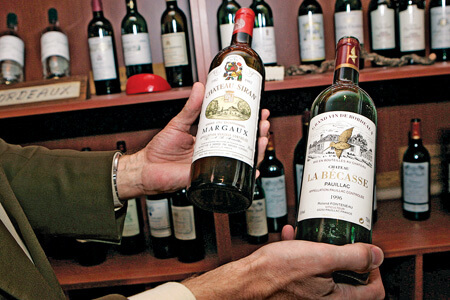How much tax do I owe on the sale of collectable wines at auction?
Want to press grapes into cash? Save your receipts and pay the tax
Advertisement
Want to press grapes into cash? Save your receipts and pay the tax
 Q. In the 1980s, I bought a number of bottles of wine that I kept in my cellar. I’ve now put this wine up for auction, and it will fetch over $10,000. However, I have no records of the original purchases, and no memory of what I paid for the wine, although it was certainly a lot less. How do I handle the reporting of capital gains on the sale of the wine? – Ken M. Toronto
Hi, Ken. That’s a good question. For U.S.citizens, green card holders and those who are considered resident aliens under the U.S. Tax Code, sales from collectibles including bottles of wine are taxed a 28% capital gains rate, plus of course an additional 3.8% Net Investment Income Tax if you have a high income.
Assuming you live in Canada, you would receive credit for any taxes you pay to Canada Revenue Agency on the income. On the Canadian side, because the wine is listed as personal property, the original cost is assumed to be $1.000 (Cdn.). That would be your starting point.
Since Canadian taxpayers are required to keep books and records in order to determine their tax liability, you would need to find some sort of documentation to support a higher cost. Also, remember that only 50% of the capital gain will be included in your income and the gain can be reduced by all of the documented expenses you incur to sell it.
Cleo Hamel is a senior tax expert with American Expat Taxes in Calgary
MORE ABOUT ASK A TAX EXPERT:
Q. In the 1980s, I bought a number of bottles of wine that I kept in my cellar. I’ve now put this wine up for auction, and it will fetch over $10,000. However, I have no records of the original purchases, and no memory of what I paid for the wine, although it was certainly a lot less. How do I handle the reporting of capital gains on the sale of the wine? – Ken M. Toronto
Hi, Ken. That’s a good question. For U.S.citizens, green card holders and those who are considered resident aliens under the U.S. Tax Code, sales from collectibles including bottles of wine are taxed a 28% capital gains rate, plus of course an additional 3.8% Net Investment Income Tax if you have a high income.
Assuming you live in Canada, you would receive credit for any taxes you pay to Canada Revenue Agency on the income. On the Canadian side, because the wine is listed as personal property, the original cost is assumed to be $1.000 (Cdn.). That would be your starting point.
Since Canadian taxpayers are required to keep books and records in order to determine their tax liability, you would need to find some sort of documentation to support a higher cost. Also, remember that only 50% of the capital gain will be included in your income and the gain can be reduced by all of the documented expenses you incur to sell it.
Cleo Hamel is a senior tax expert with American Expat Taxes in Calgary
MORE ABOUT ASK A TAX EXPERT:
Share this article Share on Facebook Share on Twitter Share on Linkedin Share on Reddit Share on Email
hello. what if two children inherit a large wine collection from their mother worth $1 million dollars?
Scenario 1 – they inherit the collection outright. each time a bottle of wine is drunk – is there a capital gain? I think not.
Scenario 2 – the wine collection is place in the trust. in this case – is there a capital gain? I think most likely because the distribution to the beneficiary of a bottle of wine should trigger a gain if the wine went in price between date of death and the day of consumption.
Any thoughts are appreciated. thanks!
Due to the large volume of comments we receive, we regret that we are unable to respond directly to each one. We invite you to email your question to [email protected], where it will be considered for a future response by one of our expert columnists. For personal advice, we suggest consulting with a qualified advisor.